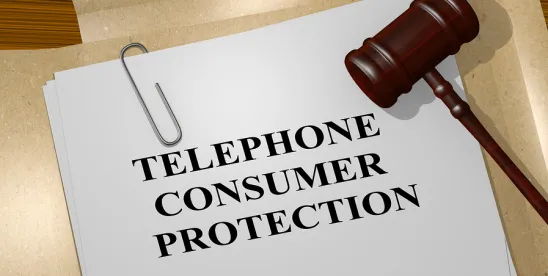As we’ve reported thoroughly, the Eleventh Circuit’s big ATDS ruling in Glasser should be a real game changer. The decision holds that the TCPA only applies to ATDS calls that are made using a system with the capacity to dial randomly or sequentially. But huge though Glasser is for Defendants, the case may not compel dismissal of TCPA cases at the pleadings stage–as the nation’s first case applying Glasser demonstrates.
In Becker v. Pro Custom Solar LLC, Case No: 2:19-cv-535-FtM-29NPM, 2020 U.S. Dist. LEXIS 14310 (M.D. Fl. Jan. 29, 2020) the court was asked to dismiss the Plaintiff’s complaint for lack of sufficient allegations regarding ATDS usage. The Defendant argued that the allegations did not demonstrate random or sequential number generation.
Although the Court–recognizing Glasser— agreed Defendant was “undoubtedly” correct on the legal standard, the Defendant’s motion was denied. The reason? Plaintiff alleged (1) he heard a long pause upon answering the phone, which is indicative of the use of ATDS technology; (2) Defendant called Plaintiff using a “spoofed” phone number, which is “consistent with [the] use of an ATDS” and (3) other individuals have made internet complaints that Defendant makes unsolicited “robocalls.”
So on the basis of unsubstantiated hearsay internet complaints, encountering a pause and the use of a “spoofed” number the Court concludes Plaintiff had “plausibly” pleaded use of a system with the capacity to randomly or sequentially generate numbers. I don’t get it. But that’s what happened.
Importantly, although the Court cites to Glasser and acknowledges its holding, it goes on to rely on pre-Glasser authority to determine the level of factual allegations necessary to survive the pleadings stage. In other words, the Court implicitly holds Glasser does not alter the ATDS pleading standard.
If the logic of Becker is followed, post-Glasser Defendants may still be in for quite the TCPA ride–even in the Eleventh Circuit. Most calls by predictive dialers–a very common form of technology used for outreach by call centers– will commence with some level of a pause. Internet complaints are easy to find on just about any company. And “spoofing” is not very well understood; Plaintiffs (and even courts) confuse “local touch” with “spoofing.” Plus there’s still the headache of short messages being treated as pre-recorded calls.So the TCPA may not go totally dormant in the Eleventh after all.
We’ll keep an eye on this.




 />i
/>i

